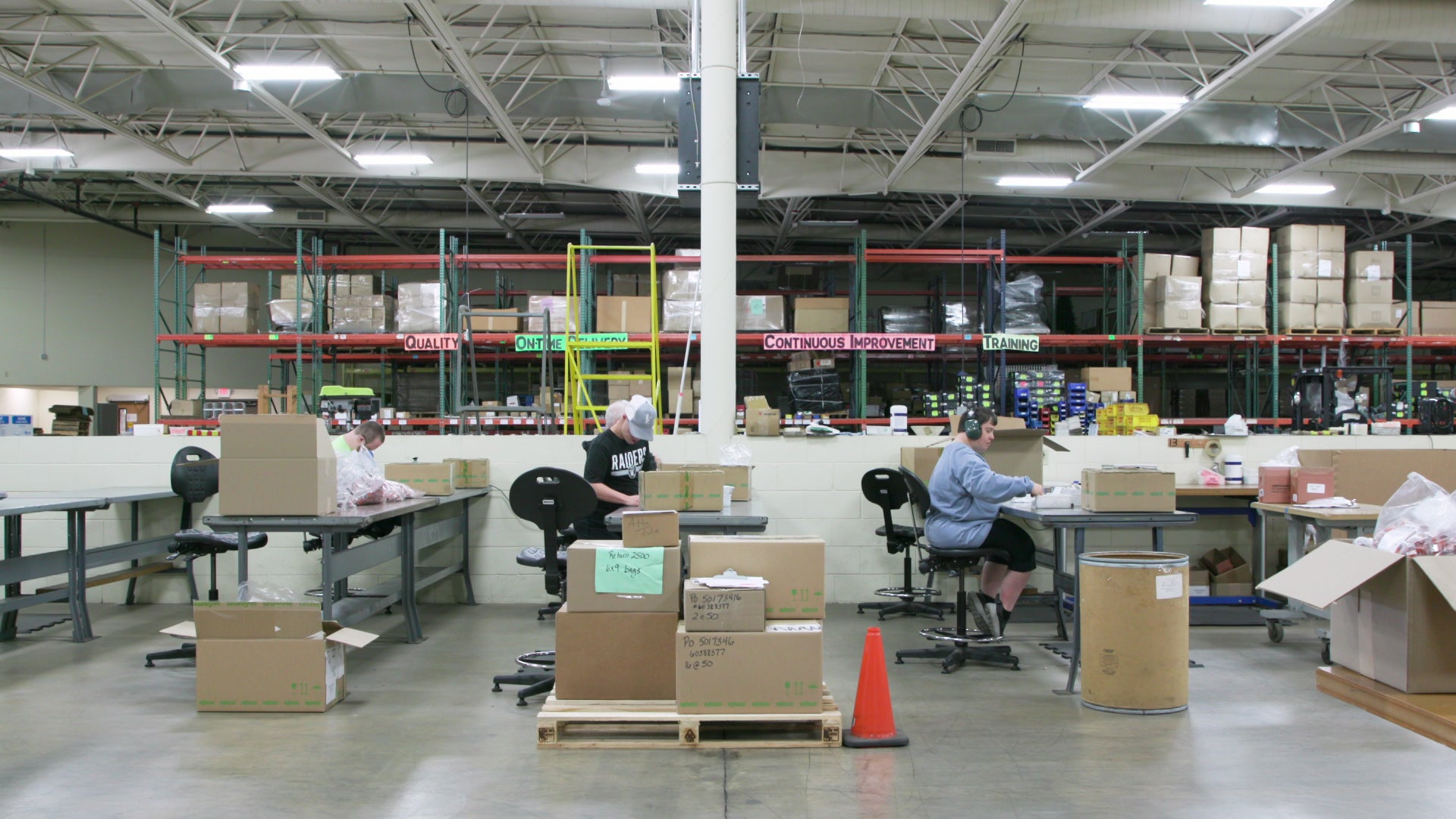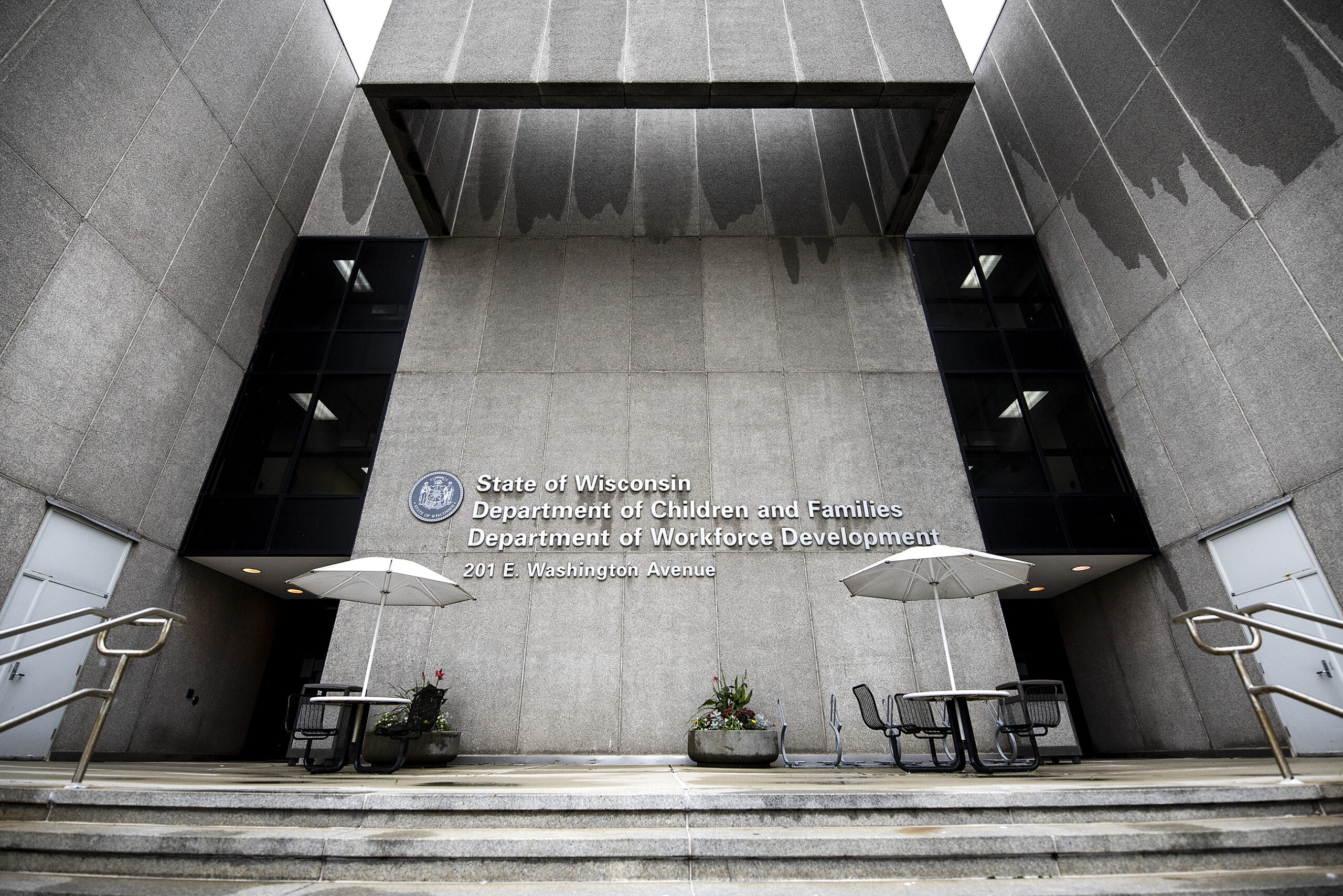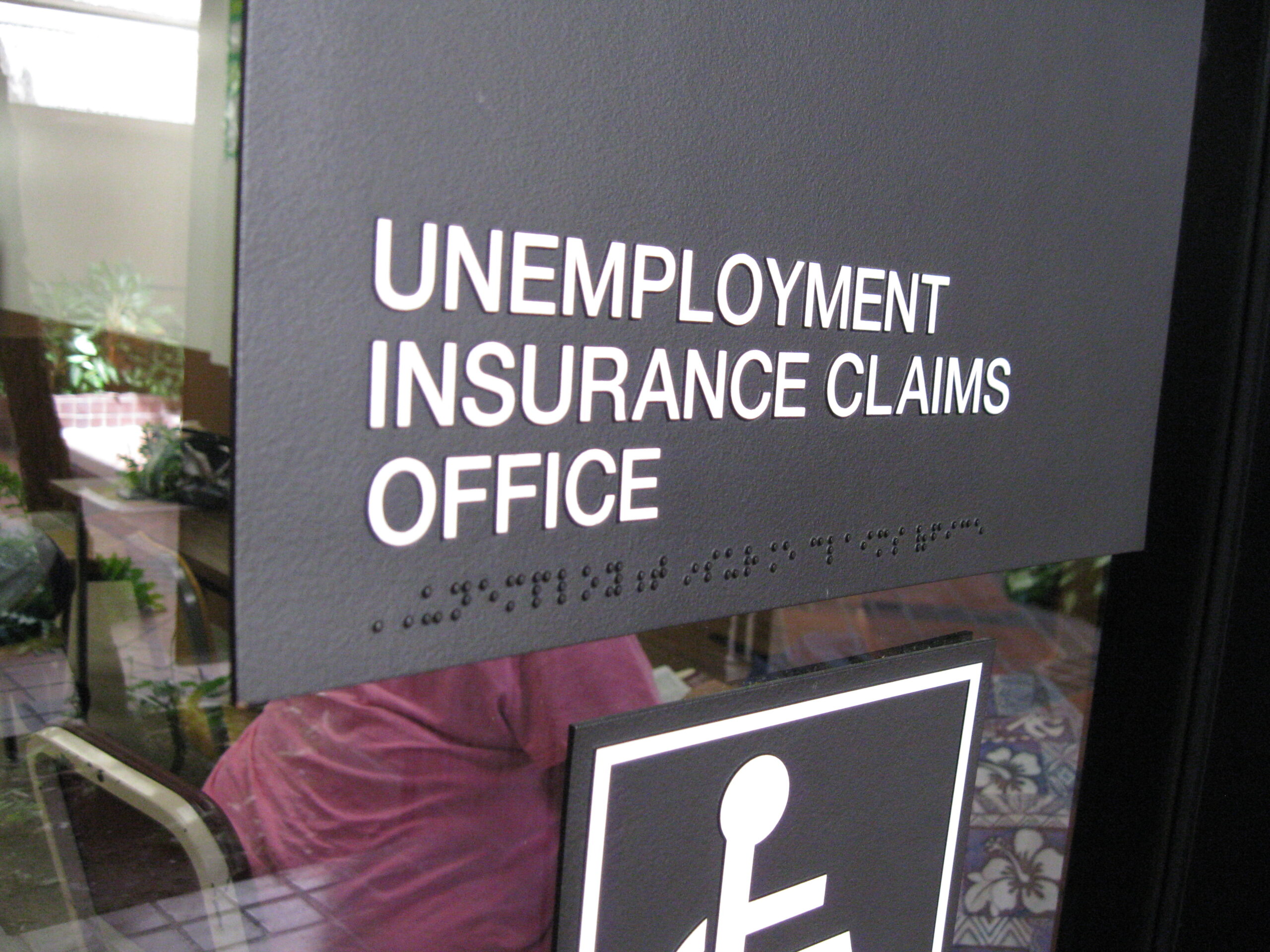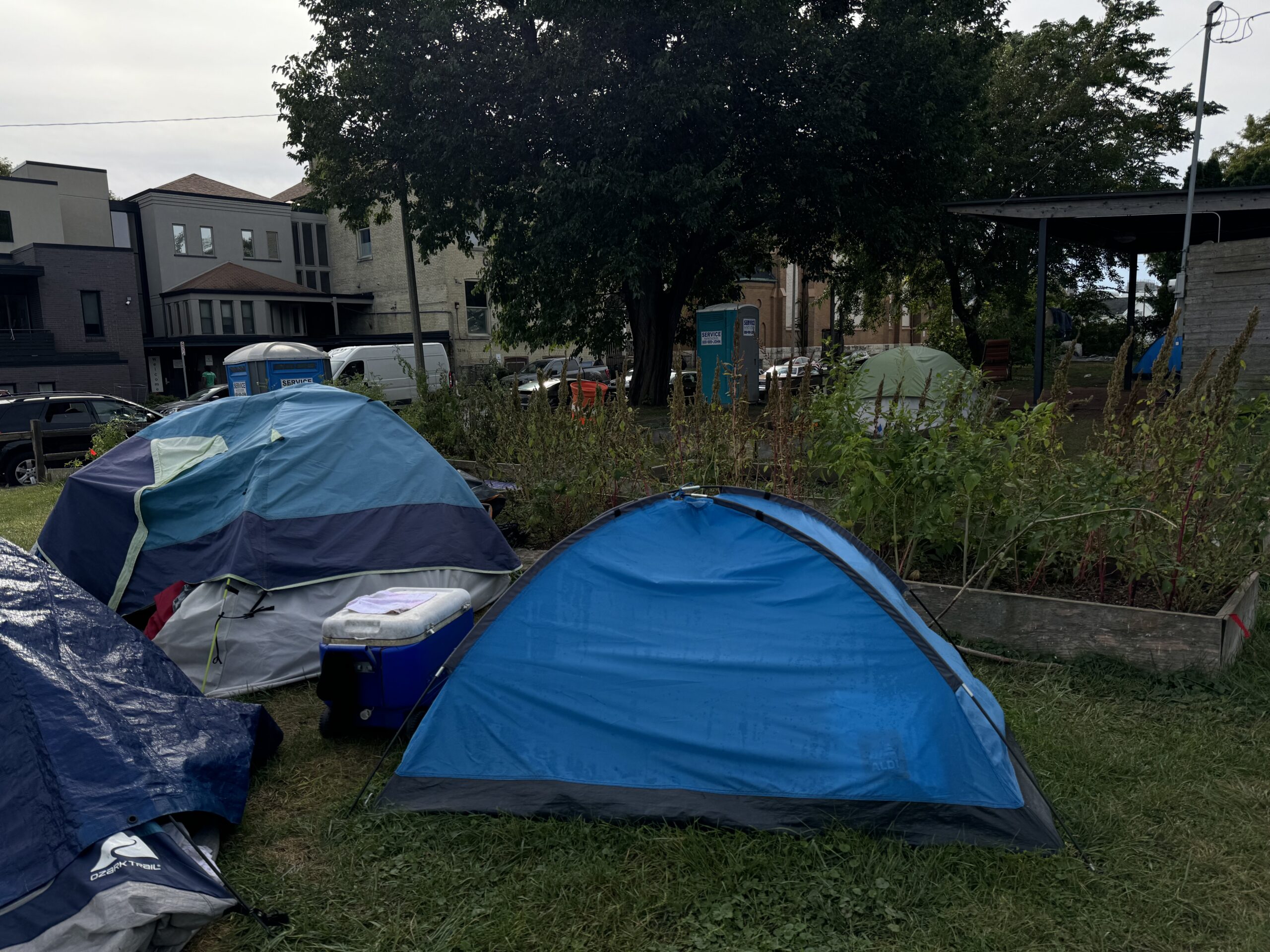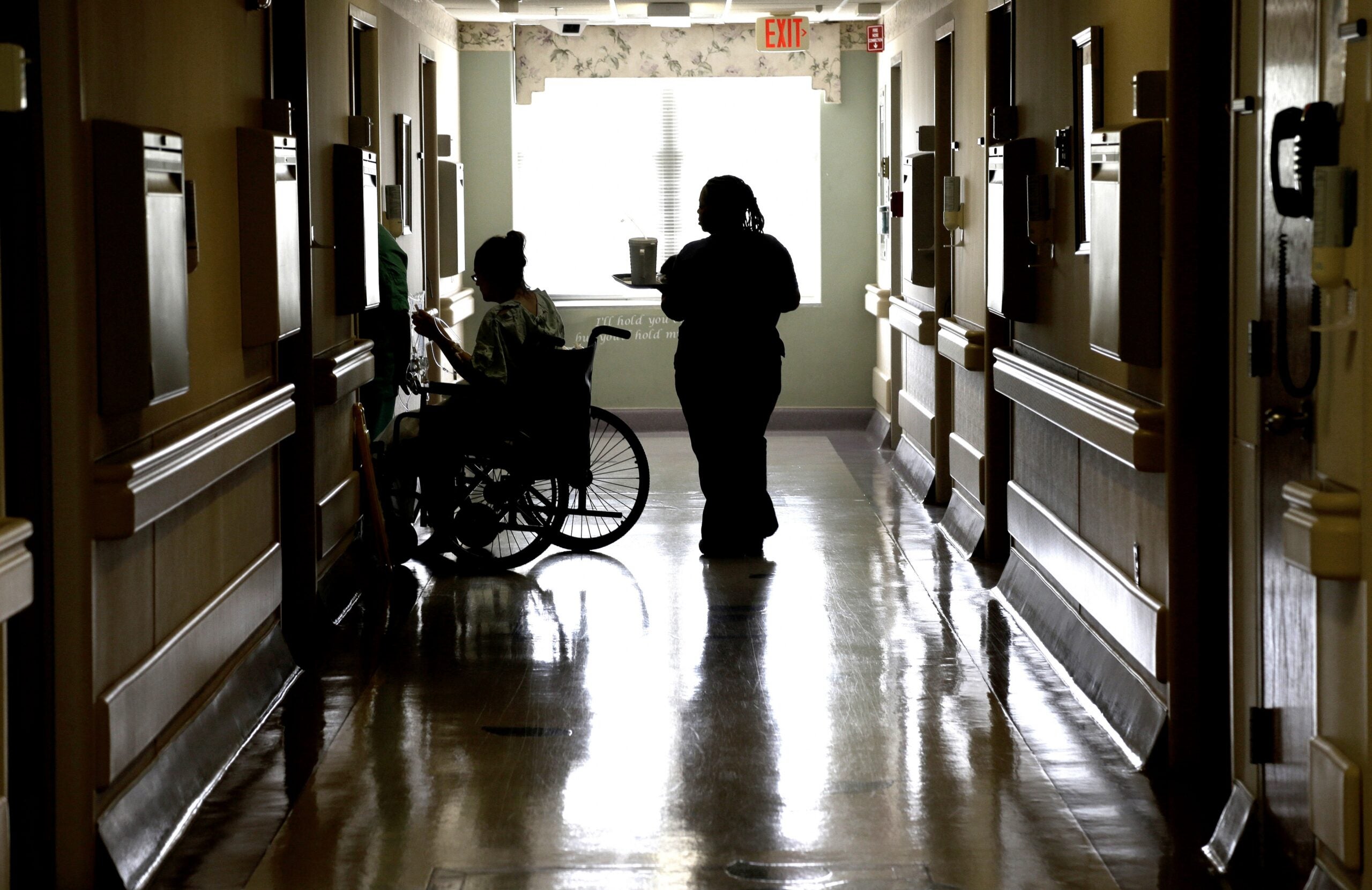Before the 2024 election, Wisconsin Public Radio is asking people through the America Amplified initiative about what elected officials could do to improve their communities. Mary Swifka from Outagamie County reached out with a suggestion about the impacts of Medicaid funding on care for people with disabilities. PBS Wisconsin’s “Here & Now” is collaborating with WPR to help respond to these questions.
For years, the debate to expand Medicaid in Wisconsin has been shut down by Republicans refusing to consider it, even as a report from the Wisconsin Policy Forum says it could save the state $1.7 billion. One population that Medicaid serves but often feels left out of the conversation are people with disabilities, many of whom are pitted between earning a fair wage and keeping their benefits.
News with a little more humanity
WPR’s “Wisconsin Today” newsletter keeps you connected to the state you love without feeling overwhelmed. No paywall. No agenda. No corporate filter.
“This is part of their day — it’s a part of their routine. They enjoy that paycheck at the end of every two weeks,” said Laura Paepke, who runs a job skills-building program for people with developmental disabilities.
“We are their day service provider. So, if there are days that there is not work available, we’ll do some vocational workshops.”
Paepke’s program, called TTI Industries, is one of 49 employers in the state with a special certification known as 14(C). It allows her to pay workers with disabilities based on their productivity, even if that comes out to less than the state minimum wage of $7.25 an hour.
That pay arrangement, however, doesn’t sit well with advocates like Beth Swedeen, executive director of the Wisconsin Board for People with Developmental Disabilities.
“Our position is that people with disabilities should be working at similar jobs to other people based on their interests and that they should get compensated at market rates,” Swedeen said.
Paying workers with disabilities less than minimum wage has induced controversy across the country, causing 13 states to eliminate those kinds of private employers altogether.
“My brother’s name is Matthew, and he is 46 years old. He’s been at TTI Industries for at least 20 years,” said Kristina Mueller.
She lives with her brother Matthew, who enjoys his work at TTI, and said that even if he earned minimum wage, he wouldn’t be able to get ahead.
“If he makes above a certain amount of money, his SSI benefits automatically get reduced, and he then is also subject to losing his Medicaid benefits,” Kristina Mueller said.
She’s found the debate over 14(C) employment programs for disabled workers to be frustrating.
“Since everything has started with trying to eliminate the 14(C) certification, the managed care organizations put in more restrictions,” said Mueller.
Managed care organizations are the decision-makers for how Medicaid dollars are spent, which includes funding for TTI Industries. In 2014, federal regulations forced Wisconsin to increase the age requirement to participate in 14(C) programs from 18 to 25. This change was aimed at getting younger adults to seek standard jobs before turning to sheltered workshop employment.
“Like any complex social problem, there’s no silver bullet solution,” said Swedeen, who adds Medicaid expansion could improve these programs.
“That money could be invested back into wages, benefits and other supports,” she said.
This change would eliminate one of Kristina Mueller’s main reasons for favoring sub-minimum wage work for her brother: fear of losing his Medicaid benefits.
“We should be fighting for their for no caps on their Social Security benefits, for not having caps for their Medicaid benefits, so they can get these community jobs and work, and not worry about losing their benefits and having those cut or reduced because now they’re making too much money,” she said.
“That’s not true,” said Swedeen. “There’s a lot of benefits counseling out there that can help people understand how much they can earn and still retain their health insurance and other public benefits.”
Medicaid expansion would also mean added supports for personal care and employment skills for people with disabilities, and not having to choose between fair wages and disability benefits.
“Noah’s not one for learning how to, you know, manage money or learn about cell phone etiquette or anything,” said Mary Swifka, Noah’s mother. He has Down syndrome.
“The idea is to give him the independence that he deserves,” she said.
Swifka is an advocate for Medicaid expansion, but she feels people with disabilities are often left out of the conversation at the state level.
“What I’ve heard from state legislative leaders is that they think that all Medicaid does is provide medical insurance for people who are lower income and frail or elderly. But Medicaid is so much more than that,” said Swifka.
“Medicaid dollars pay for Noah to be independent in his community. They pay for job coaching, and Medicaid pays for people with disabilities who have significant medical conditions to have at home care,” Swifka noted.
Swedeen said regular jobs are most valuable for people with developmental disabilities, both in wages and experiences, but that she recognizes the value in sheltered workshop programs. Medicaid expansion would give people that choice.
“There’s still a place for some people who are older maybe, or have worked or have gotten those vocational supports for many years where we’re not advocating the erasure of providers,” she said. “But we are advocating that it’s important for people, whenever possible, to get their supports in the community and at a fair market wage.”
Paepke said a statewide elimination of programs like TTI would be difficult for her clients.
“There’s community employment, vocational services — we have day activities. and that’s really what it is,” she said. “It’s the clients — that should be their choice to decide, not the government entity making that choice.”
PBS Wisconsin is partnering with Wisconsin Public Radio and the America Amplified election reporting initiative. America Amplified is a collaboration among several dozen public radio stations across the United States funded by the Corporation for Public Broadcasting, focusing on what issues matter most to people in 2024.
PBS Wisconsin’s “Here & Now” is connecting with people and issues with the help of WPR to connect with and better serve Wisconsin’s voters. What information do you need about how to vote? What do you wish candidates were talking about? Tell us what issue matters most to you and your community here.
More reporting by Wisconsin Public Radio for the America Amplified initiative is available here.
Wisconsin Public Radio, © Copyright 2025, Board of Regents of the University of Wisconsin System and Wisconsin Educational Communications Board.

